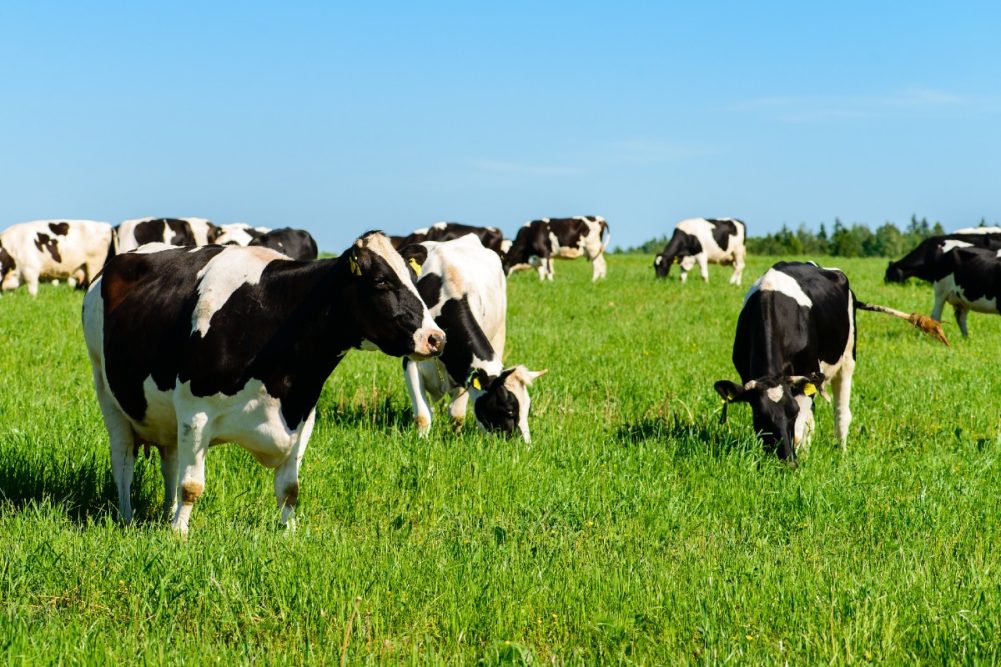MADISON, WIS. – As the dairy industry strives to make sustainable production the standard, dairy leaders also understand simply getting started can be a lot to take on for many companies.
Opening keynote panelists at CheeseCon on April 5 dove into the importance of implementing sustainable practices now.
“Doing nothing is obviously not going to be OK,” said Jeremy Travis, vice president of quality and technical services, Hilmar Cheese Company. “Getting something moving is what we all need to do.”
Mark Benson, chief procurement officer and vice president of government affairs and global responsibility for Leprino Foods, explained that the US Dairy Stewardship Commitment is advancing measurement and reporting on the industry’s behalf. The commitment involves 35 companies that represent 75% of US milk production.
Benson said during the opening session of CheeseCon, hosted by the Wisconsin Cheese Makers Association, that the dairy industry already has established a foundation in sustainability.
“That’s the good news, but it's one thing to set goals and certainly have a good foundation. It's a whole other matter to deliver those results,” he said.
To find those results, Benson said companies have to be involved with their suppliers, as well.
“As processors, we have the opportunity to lead, to set the example and deliver results through the Scope 1 and 2 areas, the four walls of our factories,” Benson said. “But that will not be enough to achieve our goals. We have to be involved with our suppliers in an area called Scope 3, and specifically with our milk producers, because milk production is 70% of the baseline that we're working from.”
Patty Stroup, senior vice president and chief procurement officer for Nestle SA, said primary data is key for any company getting started with implementing sustainable practices. She emphasized that companies must know not only the data associated with their own facilities, but also upstream supply data.
Offering advice for any company embarking on a path toward sustainability, Stroup said Nestle’s approach involves reducing the use of energy, adding technology and using renewable electricity.
“This is hard,” she added. “If it were easy, it would’ve been done already.”
Stroup said the factory piece of the equation is much simpler to figure out, while challenges typically come upstream. She said optimizing sustainability with farming and biology relies on technology.
Pete Kappelman, senior vice president of member and government relations for Land O’ Lakes, Inc., said companies across the globe are setting ESG targets and sustainability goals. He said for sustainability plans to work effectively in the dairy industry, there has to be not only partnerships but also a mutual benefit for all involved – customers, retailers and farmers.
When addressing Scope 3 sustainability, Kappelman said while working with producers it helps to explain the benefits and get them to go with your company on its sustainability journey.
“When we think about the challenges that are out there with producers, for instance, on the land, growing crops, there's a practice change,” Kappelman said. “And when you only get one chance a year to grow your crops, you really don't want to mess it up, so you fall back on what you did in the past.”
He said it is common for companies to incentivize those changes with investments and/or equipment. Stroup said when Nestle meets with upstream suppliers, cost-sharing often is part of the discussion. She also said the company has found cases in which buyers were able to profit from their sustainable practices, giving the example of using renewable electricity.
Kappelman shared that he tells producers that sustainable practices are about economic sustainability, as well. He gave the example of investing in nitrogen stabilizers.
“A lot of farmers will see that as a cost when in reality it's a value savings, because they're holding that nitrogen in the soil,” he explained. “And often, we can help grow yields, work with improving the soil health and reduce the carbon footprint at the same time.”
With consumer interests in mind, Stroup said one advantage for dairy would be keeping products affordable and nutritious. She also said dairy products can stay on menus and shopping lists if the industry can eliminate sustainability fears.
“Make it for them that they feel that not only are dairy products tasty and functional, but also that they're even good for the planet,” she said. “What I would envision is we get to a point where eating dairy is good for the planet – that the world is better off with cows and dairy products than it is without.”

